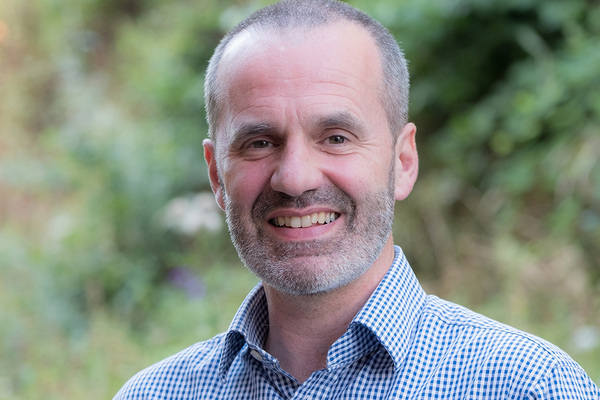You are viewing 1 of your 1 free articles
Coronavirus has brought us flexible working – and a chance to make a real change in workplace diversity
With the COVID-19 pandemic still affecting our lives in many different ways, Colette McKune looks at how changing our working practices can increase diversity in our workplaces
COVID-19 is changing the way we work in ways we’ve never experienced before. The outbreak has had a terrible effect on all our lives.
But there are positives. It has accelerated change programmes across all industries.
And as we’ve all started to become more accustomed to working in flexible and agile ways, it is important that we take advantage of the opportunities that this presents.
Encouraging diversity
I’m an advocate for diversity. Throughout my career, I’ve faced and witnessed discrimination, and it is important to me to ensure that ForHousing welcomes everybody.
Across the housing sector, we’ve been looking at ways to attract new talent and retain current staff. But ingrained processes have prevented us from moving forward as quickly as we would have liked.
More agile, flexible ways of working provide us with an opportunity to accelerate change.
According to the International Workplace Group, three-quarters (77%) of businesses are improving talent retention by introducing flexible working and a third (32%) of employees say that flexible working is so important, they would prioritise it over having a more prestigious role.
Perhaps this is due to an increasing focus on work/life balance, as flexible working is seen to improve this by 78%.
The findings also show that a flexible workplace is seen to encourage a more inclusive working environment, with benefits for returning parents, older workers, people with caring responsibilities, and people suffering from stress or struggling with mental health issues.
If we can find a way to embed agility, careers in housing will be more accessible to more people. That means attracting a wider range of talent from more diverse backgrounds.
Benefits of the ‘new normal’
By working in different ways and with new flexibility, we’ve seen lots of other benefits. We have opened our talent pool, where location is no longer a barrier for many roles, and we have successfully tested our agile recruiting and onboarding processes.
“Some staff have reported that they now feel like they know their colleagues better than when they were actually sat together”
We have enhanced flexibility in working arrangements for staff and we want to continue these arrangements where feasible. Greater flexibility has allowed those working in front-line roles to work differently and those mobile-working now have a better chance to balance their life and work.
This has also been about demonstrating that we trust our staff to do the right thing. There has been widespread support and appreciation for the enhanced flexibility, with 93% of staff reporting in a recent survey that the measures in place have helped to improve their health and well-being.
We have compared our absence data to last year and have noted a reduction in sickness. We appreciate that this is not necessarily a clear indicator of improved health; rather, staff have greater flexibility over how and when they work so take time out when they need to.
Staff have also told us that being able to ‘meet up’ with colleagues virtually has helped with morale. The fact that people are ‘meeting’ in their own homes has changed relationships – some staff have reported that they now feel like they know their colleagues better than when they were actually sat together.
A key focus for us during the pandemic has been to strengthen connections and to help teams build new habits.
“Now that we have the opportunity to change the way we work, we also have the opportunity to think about all aspects of our employment practices”
We have stressed the importance to managers of continuing to sustain and strengthen inclusion in our new mobile environment. We achieve this in several ways. For example, managers pay attention to those who are quieter and actively bring them into the dialogue, enabling them to make meaningful contributions. Everything we do is inclusive of everyone.
With a downturn in the economy anticipated in the coming years, the need for social housing may be greater than ever. It will be essential for us to ensure colleagues can face the challenges ahead, working in ways that are most beneficial to them and to us as an organisation.
Highlighting inequalities
Something else that the pandemic has done is highlight inequalities.
It has been shown that in England and Wales, Black people are more than four times more likely than white people to die from COVID-19. In part, this disparity is caused by differences in communities’ wealth, health, education and living arrangements.
This – along with the recent rise of the Black Lives Matter movement, which has brought the racism and inequality faced by so many people across the world into sharp focus – means we must all face up to the fact that we need to do more to overcome these inequalities.
We have recently celebrated Pride month, which makes us think more about the inequalities still faced by the LGBTQ+ community.
We have talked for so long and there have been so many promises over the years, without much substantial change in a lot of areas.
“We have the chance to address these issues and demonstrate real, meaningful, substantial and sustainable change”
Now that we have the opportunity to change the way we work, we also have the opportunity to think about all aspects of our employment practices.
By reviewing the way we recruit new employees and the policies we have in place for existing colleagues, we can look at any unconscious bias or indirect discrimination that may have gone unnoticed.
We have the chance to address these issues and demonstrate real, meaningful, substantial and sustainable change.
As the situation continues to evolve, we will continue to review and update our ways of working to make us truly agile – an organisation that’s ready for whatever the future brings
Lots more questions will be raised and although we don’t have all the answers, we will remain committed to ensuring flexibility and equality for our workforce, to enable us to continue to improve lives.
Colette McKune, group chief executive, ForHousing












